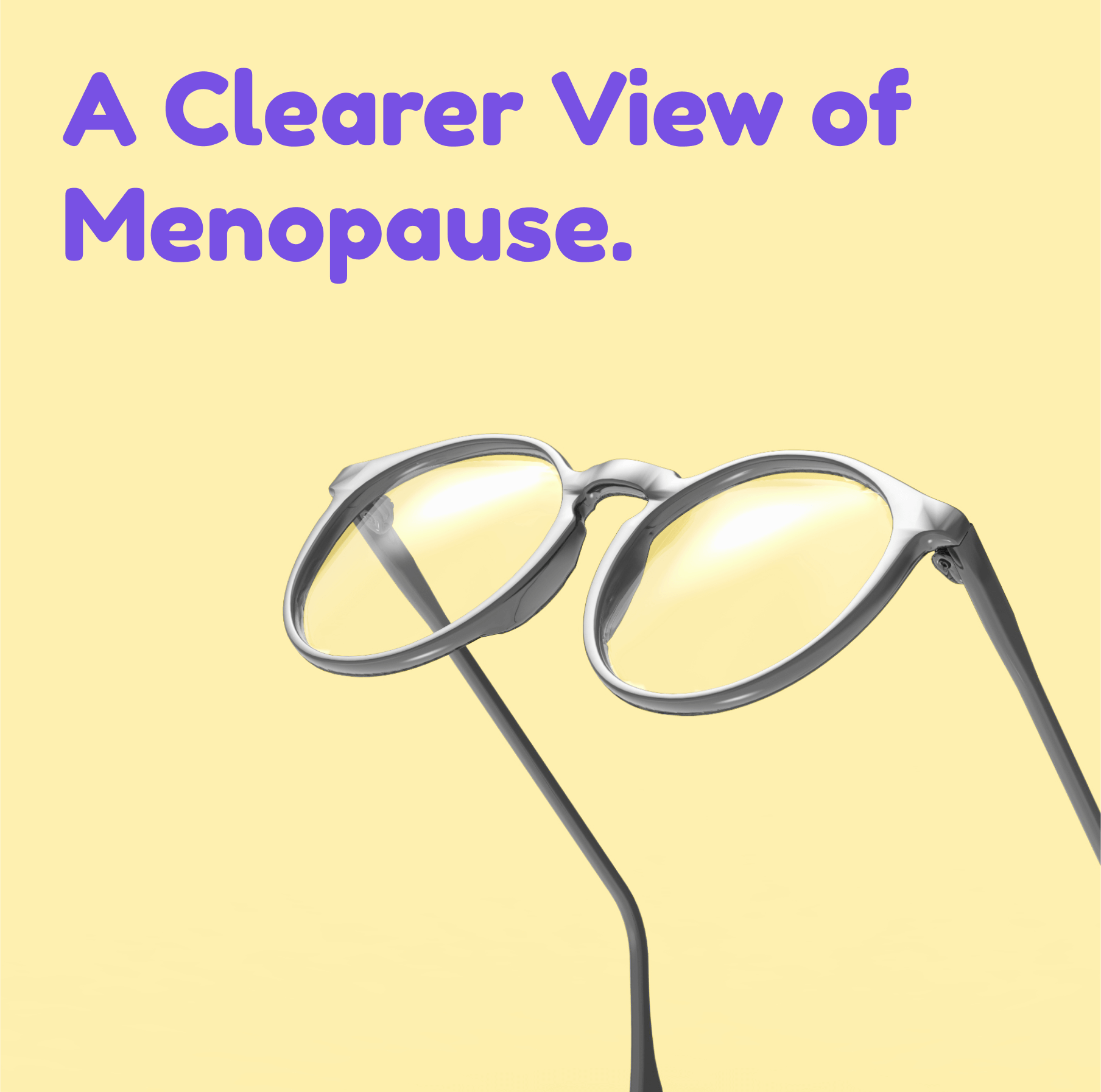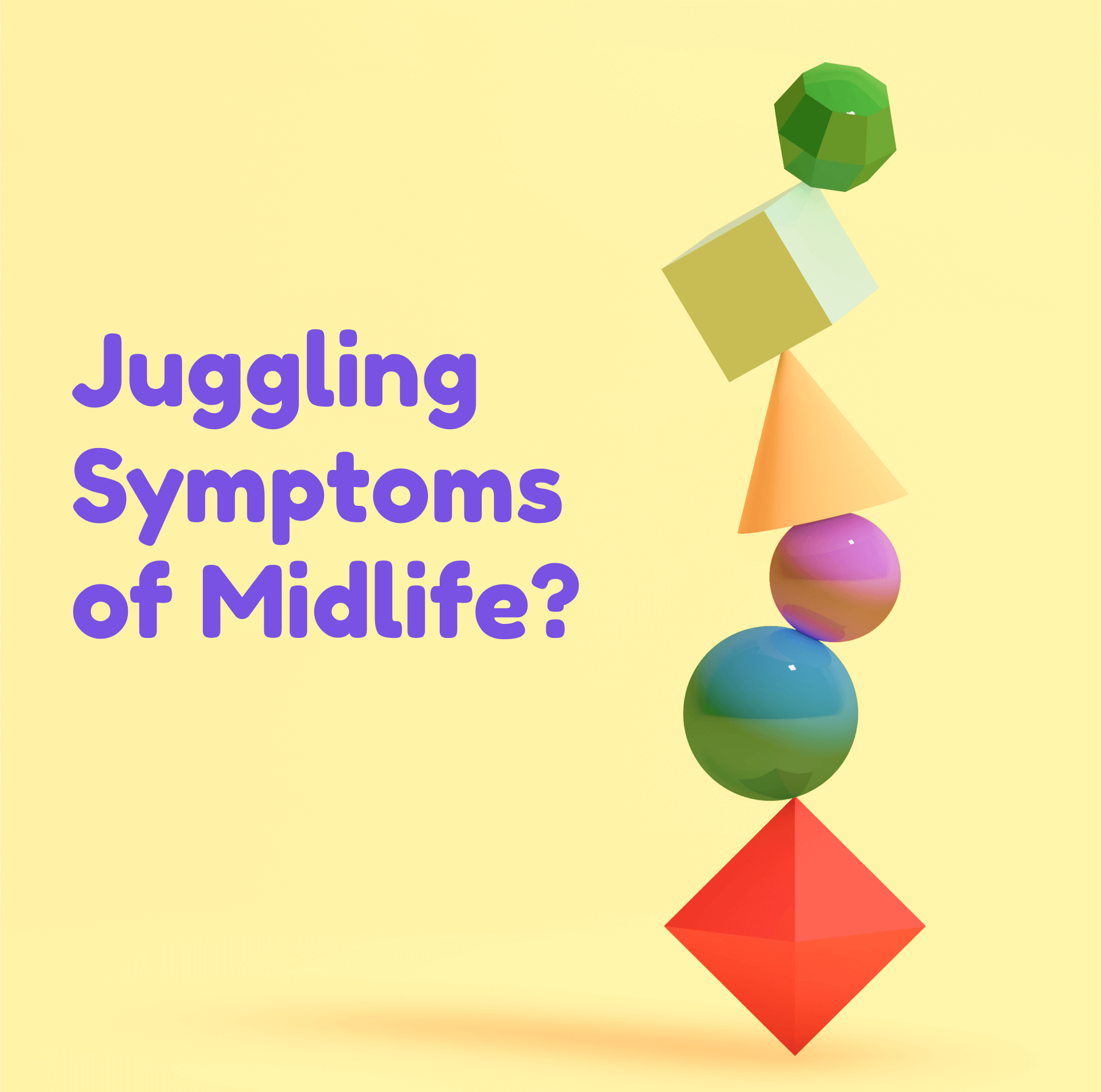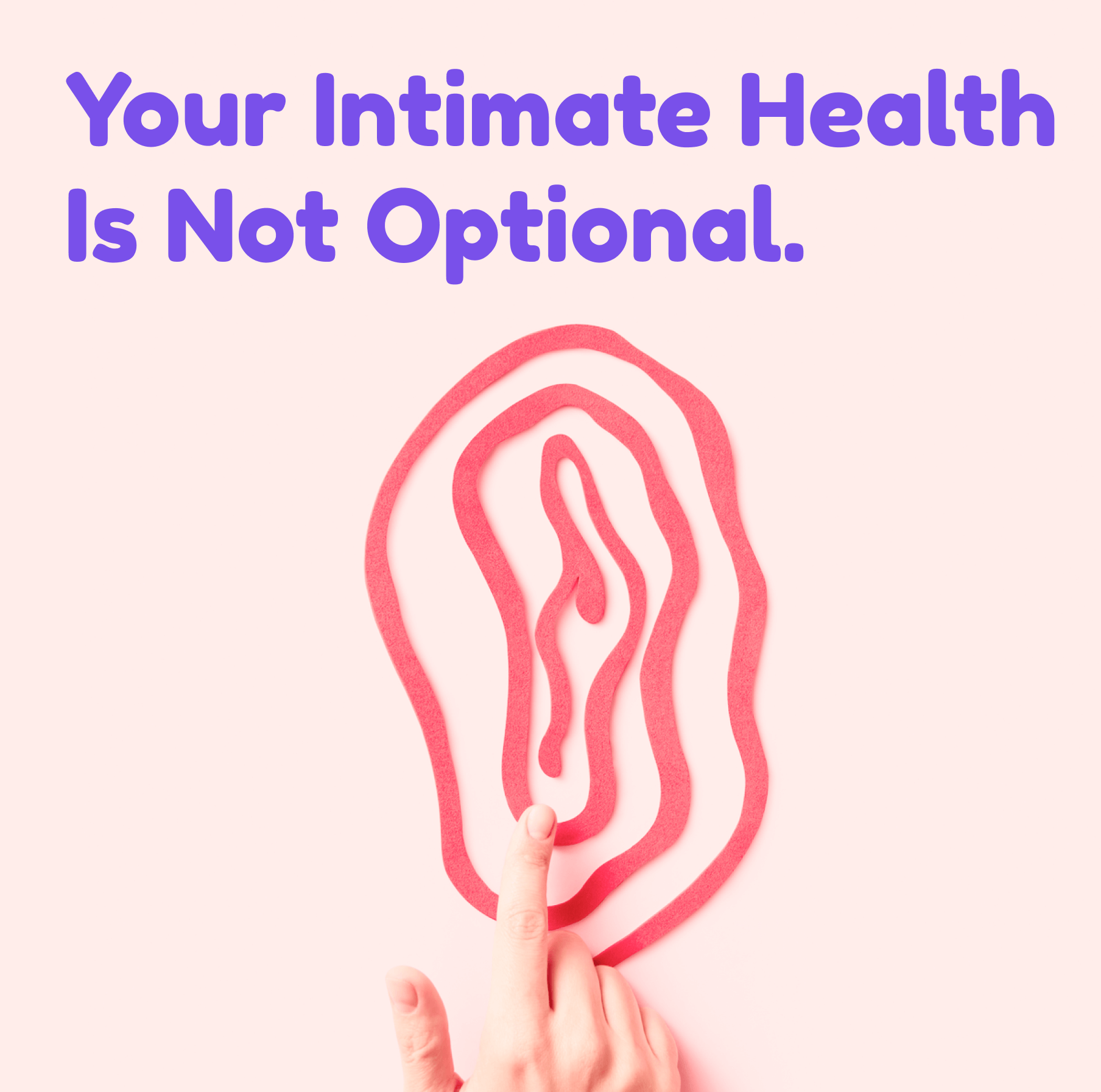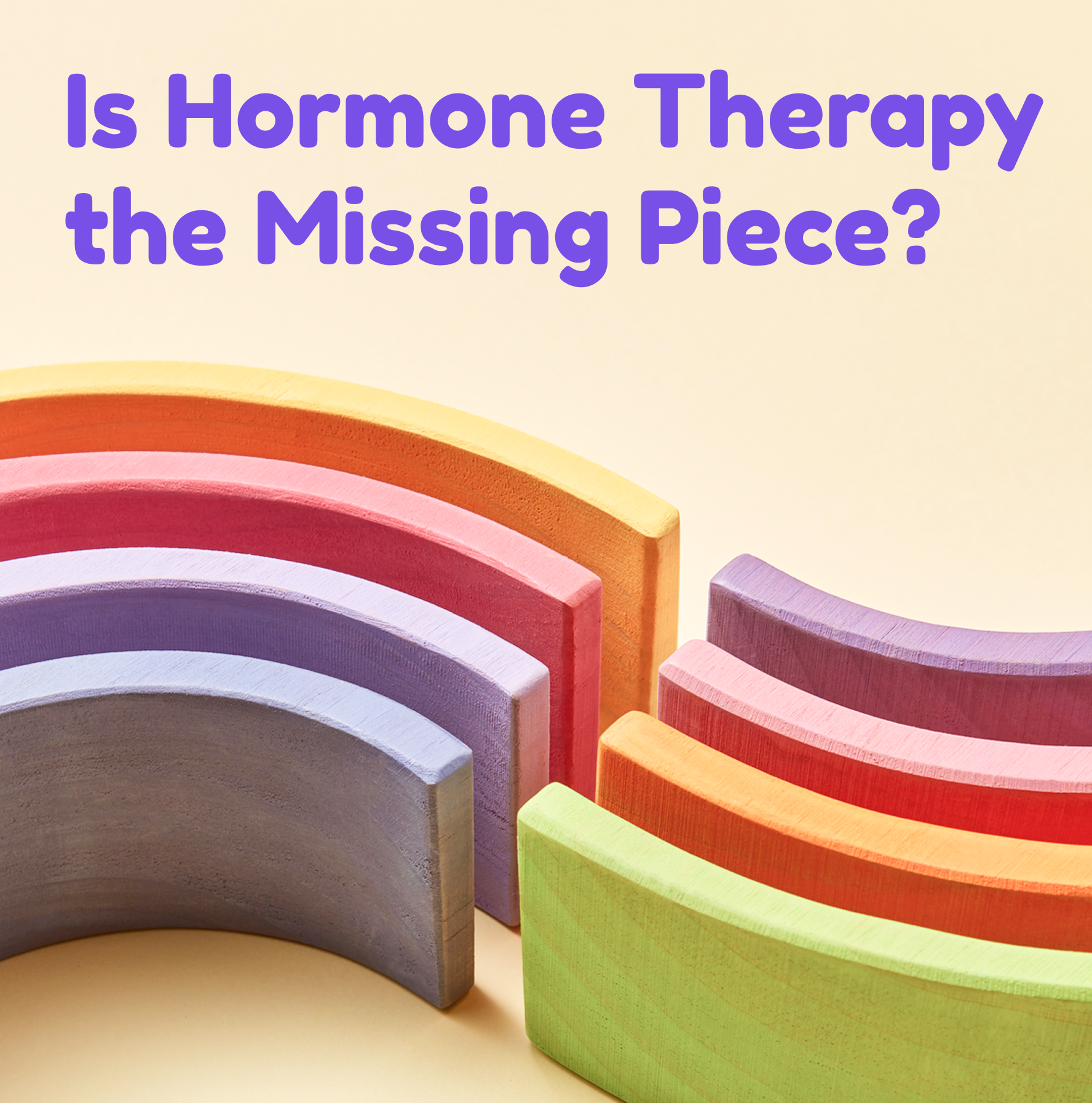
The Biggest Myths About Menopause
Menopause is a natural transition that every woman experiences in her lifetime, yet it’s surrounded by so many myths and misunderstandings. Whether you’re just starting to notice irregular periods, dealing with unexpected hot flashes and night sweats, or wondering about changes in your sex drive, it’s easy to get overwhelmed by the conflicting advice out there. Let’s take a moment to debunk some of the biggest myths about menopause in a sympathetic, lighthearted, and engaging way.
Got questions? Ask Noor.
A Relatable Beginning
Imagine catching up with your closest friends over coffee. One of you mentions that you “haven’t had a period” in over a year, while another shares a story about battling persistent hot flashes and even experimenting with a new vaginal moisturizer to ease discomfort. Another describes feeling flat, foggy headed and tired with their libido ‘in the basement.’ These conversations, full of personal anecdotes and shared laughter, remind us that while the journey through perimenopause and menopause is unique for every woman, the myths that surround it are common and often misleading.
Myth 1: Menopause Means You’re Getting Old
The Myth: Many believe that entering menopause is synonymous with “getting old” or becoming frail.
The Truth: Menopause is not a sign of weakness but rather a natural shift in your body’s hormonal landscape. In the United States, 51 is the average age for menopause, but the transition can begin as early as your 40s—or even in your 30s for some—when you experience perimenopause. It’s simply your body’s way of saying, “I’m moving into a new phase.” The good news is, safe and effective treatments are also available. And many women find that this stage of life brings newfound freedom and wisdom. For aging doesn’t make you less vibrant; it just means you’ve got more stories to tell.
Myth 2: Hot Flashes and Night Sweats Are the Only Symptoms
The Myth: If you’re not experiencing hot flashes or night sweats, you’re not in menopause.
The Truth: While hot flashes and night sweats are some of the most talked-about symptoms, they’re only part of the story. Many women experience a variety of symptoms, including:
- Irregular Periods: Fluctuating cycle lengths and even skipped months before you officially haven’t had a period for 12 consecutive months.
- Mood Changes: Shifts in mood, anxiety, or irritability can occur as your hormones—especially estrogen and progesterone—fluctuate.
- Vaginal Dryness: This can lead to discomfort during intimacy, which is why many women turn to a vaginal moisturizer for relief.
- Reduced Libido and Fatigue: Estrogen and progesterone aren’t the only hormones that decline around menopause. Testosterone can, too, and with additive influences on the wide variety of symptoms experienced by perimenopausal and menopausal women.
- Weight Gain, Particularly Around the Mid-Line: Again, changing hormones are at play here, whether declining estrogen or testosterone or, more likely, both.
- Sleep Disturbances: Insomnia or restless nights aren’t uncommon, and they can affect your overall well-being. Relief from improved sleep is one of the first symptoms women experience after commencing treatment.
Understanding that these varied symptoms are all part of the menopause transition helps you see that there’s no “one-size-fits-all” experience here.
Myth 3: Menopause Means Your Sex Life Is Over
The Myth: Lower hormone levels automatically translate to a lost sex drive and a diminished sex life.
The Truth: Menopause can change your sex life, but it doesn’t end it. It’s true that fluctuating estrogen might cause vaginal dryness or discomfort during sex and diminished testosterone levels might affect your libido and ability to orgasm However, this doesn’t mean you have to say goodbye to intimacy. Many women discover that with the right adjustments—like using lubricants, engaging in foreplay, or even trying different positions—their sex drive can not only be maintained but can also evolve into a more fulfilling experience.
Remember, a healthy sex life is influenced by a blend of physical, emotional, and social factors. Open conversations with your partner and healthcare provider can pave the way for creative solutions that work for you. In addition, effective local or systemic hormonal and other treatment options can also restore sexual health.
Myth 4: Weight Gain Is Inevitable During Menopause
The Myth: As you transition into menopause, your body is doomed to gain weight, especially around the midsection.
The Truth: While hormonal changes can affect metabolism and lead to weight gain, it isn’t an unavoidable fate. Weight gain during menopause is indeed exacerbated by hormonal shifts while lifestyle factors can play a part, too. Here are some practical tips:
- Balanced Diet: Focus on nutrient-dense, real foods and high quality proteins to help support muscle health and regulate metabolism. Limit carbohydrates, particularly refined and processed ones that lack dense nutrition. Lastly, embrace healthy natural fats. Those efforts will help to keep blood sugars well controlled, reduce cravings, promote satiety, and catalyze weight loss, particularly for individuals impacted by insulin resistance, something quite common in menopausal populations with expanding waist lines.
- Regular Exercise: Incorporate both cardio and strength training to improve body composition by shrinking fat mass, combatthe natural loss of muscle mass (sarcopenia) associated with age related hormonal shifts, and prevent osteoporotic bone resorption in the face of menopausal estrogen deficiency. Hormonal therapy can, of course, mitigate all of these body composition changes as another benefit of individualized HRT.
- Sleep and Stress Management: Poor sleep and high stress can contribute to weight gain, so consider mindfulness practices or a relaxing bedtime routine. Again, properly formulated and tailored HRT can also facilitate sleep hygiene due to the sedating side effects of oral, micronized progesterone.
By taking a proactive approach, you can manage your weight and even enhance your overall energy and mood during this transition.
Myth 5: Hormone Therapy Is Too Dangerous
The Myth: Taking hormone therapy (HT) is risky and can lead to severe health problems like breast cancer, blood clots, or stroke.
The Truth: Hormone therapy, when prescribed and monitored by a knowledgeable healthcare provider, can be a safe and effective option for alleviating many menopausal symptoms—especially for those who experience significant discomfort from hot flashes, vaginal dryness, sleep disturbances, and more.
HT is not a one-size-fits-all solution; it may include treatments with estrogen alone or a combination of estrogen and progesterone, or even the addition of other beneficial hormones, all tailored to your individual needs. It’s important to note that risks vary depending on personal and family history, and newer generation options are arguably safer that ones that raised alarms in older studies.
Nontheless if you have a family history of breast cancer or blood clots, your doctor will carefully consider the best treatment plan. Open dialogue with your provider is key to understanding the individual benefits and potential risks of hormone therapy.
Additional Insights and Practical Tips
Menopause isn’t just a collection of symptoms—it’s a complex transition that involves both physical and emotional changes. Here are a few additional tips to help navigate this journey:
- Stay Informed: Understanding the science behind symptoms, like the role of hormones estrogen, progesterone, and others, can empower you. Educate yourself about the menopause transition, the various symptoms of menopause, and how individual hormones can ameliorate those symptoms as well as downstream health risks
- Connect with Others: Sharing your experiences with friends, support groups, or even online communities can help normalize what you’re going through. Every woman’s experience is unique, and these conversations can be both enlightening and comforting.
- Be Proactive: Whether it’s incorporating a vaginal moisturizer to manage dryness or exploring lifestyle changes to mitigate weight gain, taking small steps can lead to significant improvements in your quality of life.
- Listen to Your Body: Menopause is a time for self-discovery. Pay attention to what your body is telling you and adjust your diet, exercise, and stress management practices accordingly.
- Plan for the Future: Remember, menopause marks the end of your reproductive years, but it also opens the door to new opportunities. With the right care and a proactive mindset, this phase can be a period of empowerment and renewed energy.
Embracing the Journey
In our society, myths about menopause can sometimes cast a shadow over what is otherwise a natural and potentially empowering phase of life. Whether you’re dealing with hot flashes and night sweats, concerns about weight gain, or questions about your sex drive, it’s important to remember that you’re not alone. Every woman experiences the menopause transition differently, and while myths like “menopause means you’re getting old” or “menopausal weight gain is inevitable,” or “HRT is too dangerous” persist, the truth is far more nuanced and hopeful.
By debunking these common misconceptions, we can all start to see menopause not as a dreaded ending but as a natural evolution—a chance to embrace new challenges, explore fresh opportunities, and redefine what it means to live a vibrant, healthy life after 51 and make the ‘golden years’ just that.
A Positive Outlook
As we wrap up our conversation about the biggest myths about menopause, keep in mind that knowledge is power. The more informed you are, the better equipped you’ll be to make decisions that support your health and happiness. Whether it’s through lifestyle adjustments, medical treatments, or simply understanding that your body is evolving, every step you take is a move toward a fulfilling future.
Menopause is a shared experience—a milestone that many women experience with a mix of humor, resilience, and hope. By facing the myths head-on and embracing the truth, you can enjoy a rich and vibrant life during and after the menopause transition. Remember, your journey is uniquely yours, and while menopause might bring changes, it also brings opportunities for growth, self-care, and renewed vitality.



